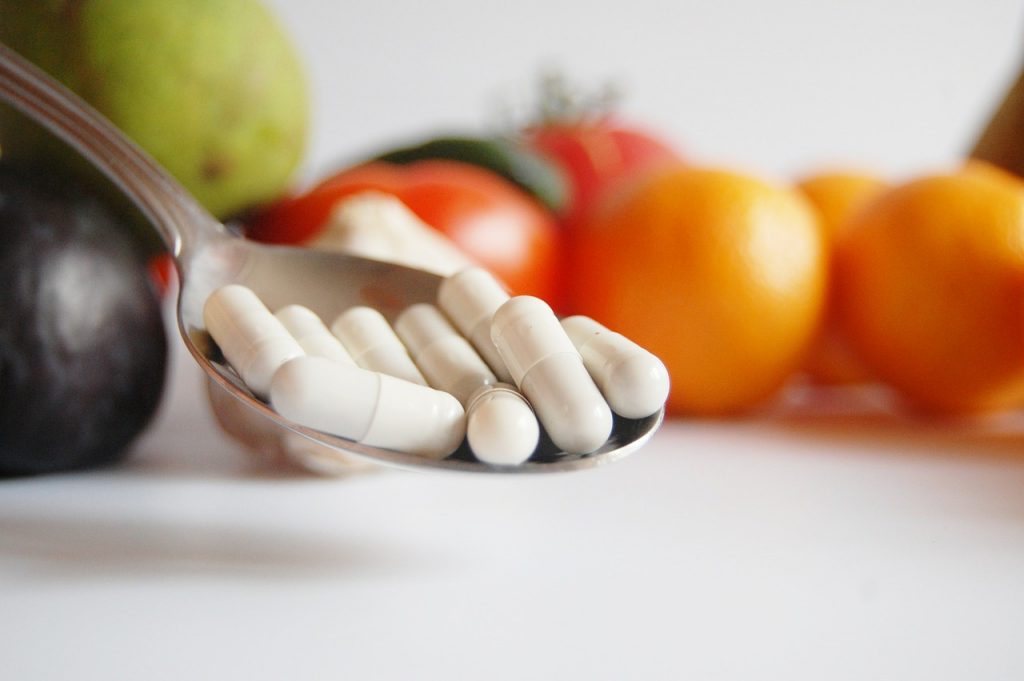23rd April 2021 – by Paz García

Taking multivitamins, omega-3, probiotics or vitamin D supplements may lessen the risk of testing positive for COVID-19 for women, according to recent findings from the COVID Symptom Study app.
The study, published in BMJ Nutrition Prevention & Health, found that men did not appear to benefit from these supplements, and that vitamin C, zinc or garlic had no effect.
First author Panayiotis Louca said:
“There has been plenty of celebrity endorsement of the use of dietary supplements to both ward off and treat COVID-19 infection since the start of the pandemic, although scientific evidence has been lacking.
“Our research shows that women taking certain supplements were slightly less likely to test positive for COVID-19, but we need further research to understand why this is the case before we can recommend these supplements to all women to protect against COVID-19.”
In the UK alone, sales of vitamin C rose by 110% and those of multivitamins by 93% in the period leading up to the first lockdown in March 2020.
The researchers analysed information supplied by 372,720 adult users of the COVID-19 Symptom Study app to see if regular supplement users were less likely to test positive for SARS-CoV-2, the virus responsible for COVID-19 infection.
The app was launched in the UK in March 2020 to capture self-reported information on symptoms, test results and other health and lifestyle information throughout the pandemic.
Taking probiotics, omega-3 fatty acids, multivitamins or vitamin D was associated with a lower risk of COVID-19 infection by 14%, 12%, 13% and 9% respectively, even after accounting for other factors such as underlying conditions and the overall quality of each person’s diet. In addition, the team found that these supplements had a slight protective effect for women of all ages and weights.
No such effects were observed among men or in those taking vitamin C, zinc or garlic supplements.
Senior author Cristina Menni said:
“This study indicates there may be a link between supplements and COVID-19, but our research is an observational study and not a clinical trial. We need further research and clinical trials to establish if taking certain supplements can indeed offer any protection against COVID-19.
Professor Tim Spector said:
“Many people think that taking vitamins and other supplements can help maintain a healthy immune system but spending your money on supplements in the hope of trying to avoid getting COVID-19 is largely unjustified. You’re better off focusing on getting a healthy diet with diverse fresh vegetables and fruits, which should give you all the nutrients you need for a healthy immune system.
“Until we have further evidence about the role of supplements in COVID prevention, we recommend following NHS guidance on vitamins usage, as part of a healthy balanced diet.”






